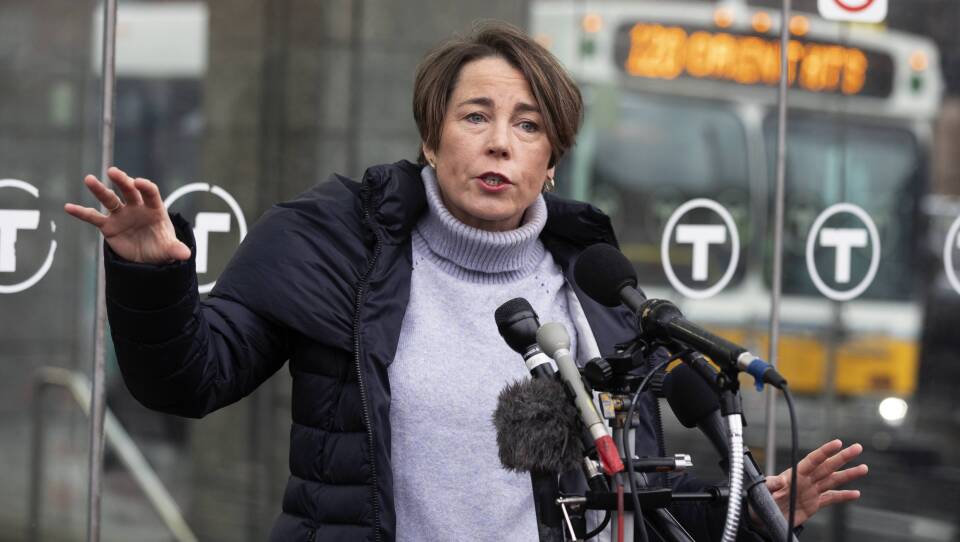Gov. Maura Healey’s task force to come up with solutions to the state’s transportation funding problems has delayed the release of a long-awaited report that was supposed to be sent to the governor’s desk today.
Healey created the Transportation Funding Task Force through an executive order in January, calling for the 31-member panel of public- and private-sector leaders to review the commonwealth’s transportation finances and propose solutions to the state’s funding woes, including a nearly $800 million budget deficit for the MBTA. The order required the task force to “provide a written report to the Governor detailing its findings and recommendations by December 31, 2024.”
But the panel needs more time, according to the Massachusetts Department of Transportation. A representative from the agency said that the task force is “still finalizing the report” but expects to send it to the governor “soon.” The agency did not provide more details when asked why the report wasn’t submitted on time.
For transportation experts, the delay is baffling.
“This task force has been up and running for a while. And to be perfectly honest, I think the December 31st date made sense,” said former Massachusetts Secretary of Transportation Jim Aloisi. “I don’t know why it would take a lot more time.”
The commonwealth’s transportation funding problems are well-known, with advocates raising concern about a “fiscal cliff” at the MBTA and the possibility of service cuts. Experts expect budgetary deficits will only grow in the years ahead with revenue from the gas tax expected to drop as more drivers convert to electric vehicles.
A recent report from the nonprofit Transportation for Massachusetts made an urgent plea for state officials to find alternative streams of revenue, such as increased corporate taxes, congestion pricing and using more revenue from the state’s tax on incomes over $1 million.
According to Aloisi, the fact that the revenue problem and potential solutions are already public knowledge makes it particularly puzzling that the governor’s task force was unable to release its report on time.
“There’s nothing they’re going to say that’s going to be new,” he said, adding that he believes the governor primarily formed the task force for political reasons. “The point of the task force was to give the governor some cover, because she’s got to go out there and persuade the Legislature and the general public about a plan.”
Healey has said in recent interviews that improving transportation infrastructure and building more housing are her top priorities for 2025. Advocates are hopeful that she will use her State of the State address, scheduled for Jan. 16, to call on lawmakers to pass sustainable transportation funding.
But whether or not there’s an appetite to approve new revenue streams for the T remains to be seen. The Legislature has failed to do so in the past, instead passing short-term fixes. Several sources on Beacon Hill tell GBH News that part of the difficulty rests in convincing lawmakers from outside of greater Boston to provide more cash to an agency that primarily operates in and around the city.
The MBTA has been continually underfunded for decades, leading to an avalanche of safety problems, maintenance issues and service interruptions. Under the leadership of General Manager Phil Eng, the T recently instituted a series of planned closures on all train lines in order to conduct sorely needed maintenance work and lift slow zones.
Earlier this month, the agency finished that work and fulfilled its promise of getting all lines running at full speed before the end of the year. But advocates are concerned that any progress could be lost if the state doesn’t fill budgetary gaps before July 1, when the next budgetary year begins and the T is set to face a funding crisis.




